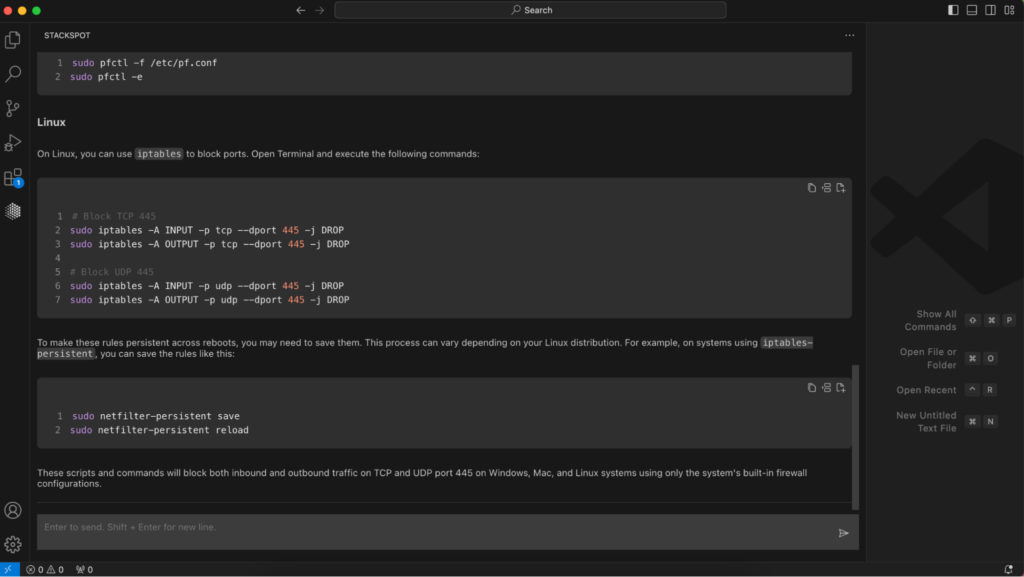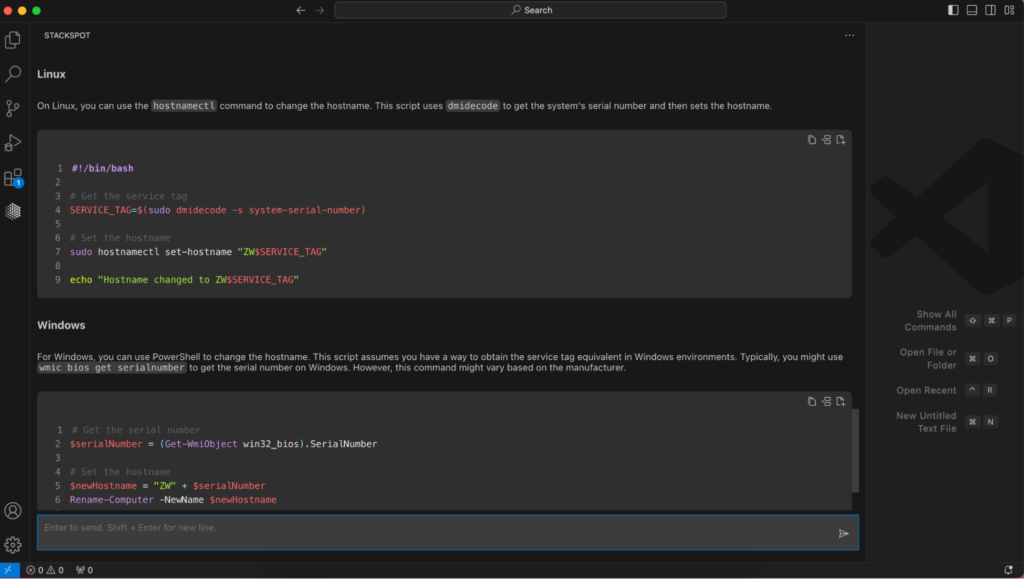A Security Operations (SecOps) team serves as a dedicated unit entrusted with the responsibility of managing and bolstering an organization’s security posture. Comprised of skilled professionals, SecOps teams seamlessly integrate security practices into overall operations, ensuring the safeguarding of information systems, networks, and data.
Their core functions encompass monitoring, threat detection, incident response, vulnerability management, and collaboration with other IT and operational teams.
SecOps underscores a proactive stance towards cybersecurity, with the aim of promptly identifying and neutralizing potential threats. The team plays a pivotal role in protecting sensitive assets, ensuring compliance, and strengthening the organization’s resilience against evolving security risks.
Nevertheless, SecOps teams frequently encounter challenges in crafting scripts for vulnerability rectification, software deployment, and standardization. These challenges are particularly pronounced for team members without a development background.
In essence, there exists a pressing need for a solution that can bridge this gap for non-developers within SecOps, providing an efficient and secure platform for script creation, standardization, and automation across various operating systems. It is within this context that StackSpot AI emerges as a viable solution.
SecOps Challenges
Conversations with SecOps teams shed light on their challenges. Team members express difficulties in crafting intricate scripts for vulnerability correction, while software deployment poses a formidable hurdle, especially for non-developers.
Automating routine tasks, such as software updates, presents inherent challenges due to the complexity of commands across different operating systems (e.g., Windows, Linux, Ubuntu, and MacOS), demanding a certain level of technical proficiency. Manual script creation requires meticulous attention to detail, often resulting in time-consuming efforts.
Furthermore, the need for close collaboration with other teams underscores the necessity for a streamlined approach to script generation, ensuring consistency and adherence to security protocols. Concerns regarding security and the potential risks associated with sourcing scripts from external repositories further compound these challenges.
Introducing StackSpot AI
In contrast to general AI coding assistants like GitHub Copilot or Amazon Code Whisper, StackSpot AI stands out as a coding AI assistant tailored for software development tasks. Its contextualization is grounded in knowledge sources, which enrich prompts and aid users in addressing contextualized questions.
The effectiveness of StackSpot AI hinges on the quality and representativeness of its knowledge sources. Representative knowledge sources ensure the delivery of accurate, comprehensive insights applicable to real-world scenarios.
StackSpot AI in SecOps Teams
For the SecOps teams we engaged with, adopting StackSpot AI has significantly streamlined critical processes, as discussed below.
1 – Efficient Script Creation
StackSpot AI accelerates script creation for vulnerability correction and software deployment, resulting in considerable time savings compared to manual methods. Its rapid generation of scripts enhances operational workflow efficiency within the team.
For instance, the figure below illustrates some of the scripting suggestions provided by StackSpot AI to block UDP/TPC ports.

2 – Simplified Standardization and Approvals
The tool facilitates the creation of standardized configurations, particularly in collaboration with other teams such as the Blue Team, ensuring a uniform and secure approach in security operations. Standardization minimizes variations, reinforcing security measures within operations.
For instance, as depicted in the following figure, StackSpot AI eases the effort in maintaining different versions of the same routines for different operating systems.

3 – Automation of Updates
Leveraging StackSpot AI for automating updates enhances the management of routine tasks, reducing the likelihood of human errors and bolstering operational reliability and accuracy.
4 – Security in Script Generation
StackSpot AI’s commitment to not storing sensitive data enhances its reliability in script generation processes, providing a secure foundation for executing critical operations within security-focused contexts.
Conclusion
The challenges encountered by SecOps teams in script creation necessitate an efficient solution, and StackSpot AI, tailored for software development, emerges as a pragmatic remedy. Its impact is evident in streamlining script creation processes, simplifying standardization, and enhancing security in operations. By addressing the intricacies faced by non-developers, StackSpot AI significantly accelerates workflows and reduces time-intensive tasks within SecOps teams.
To learn more about StackSpot AI and its potential for navigating the complexities of script standardization and automation within SecOps teams, reach out today.
* Adalberto Junior contributed to this content

 Skip to content
Skip to content


